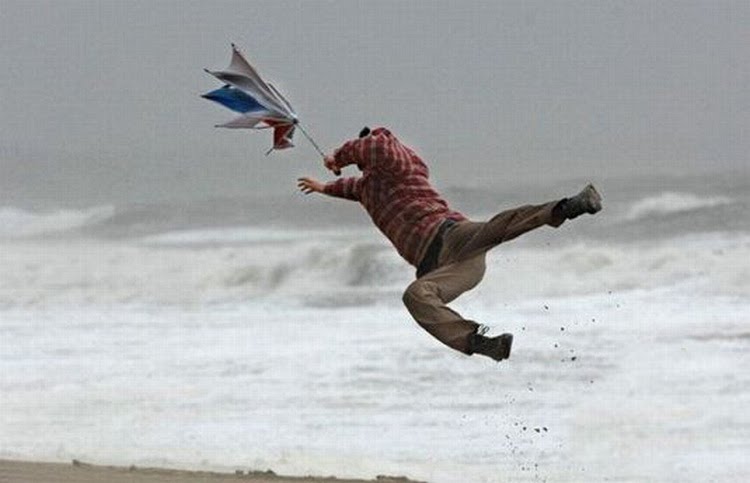Benefits meeting? Photocopier down? Angry customers calling who couldn’t get through on the weekend? Rain? Relax, because your Monday’s about to get tolerable if not good. It’s time for another edition of the Carnival of Wealth, featuring personal finance blog posts from around the world. If you fancy yourself as CoW material, submit here. If you want to be entertained and maybe learn something, read Chuck Klosterman’s latest at Grantland. If you want to kill a few minutes, continue reading here:
We bookmark 1 out of every maybe 1000 submissions we receive. That would include this one from Darwin’s Money. Do you know how to calculate an investment’s internal rate of return? It’s easy to do if you only buy one investment, once a year, in the same amounts. But what if you invest like a normal person? Darwin explains how to work around the variables.
Bernie Madoff might remain in prison until the next ice age, but there are still plenty of lower-level crooked investment advisors ready to steal your money. If you’re the kind of person who’s susceptible to that kind of thing Ken Faulkenberry at AAAMP Blog has you covered.
Oh, this one’s adorable. Barclaycard created the “Ring” MasterCard, the big noteworthy feature of which is that it lets cardholders vote on the card’s future. According to Laura Edgar at Nerd Wallet, “[y]ou’ll get to vote anytime Barclaycard suggests raising fees (or) changing the APR…”
Let’s think about that for a second.
“Hi, I loved your card so much that I bought $43,293.34 worth of stuff on it. That 8% introductory annual percentage rate is killing me, though. I think you should change it to 0.”
Barclaycard will also let you “weigh in on marketing ideas”:
“Dude. What if Barclaycard like, took out ad space on the moon? That would totally beat any idea that Capital One has. And because it’s on the moon, you could, like, buy pot with the card and stuff. Because there’s no laws on the moon. That’s why one of the Apollo astronauts wanted to stay there. But the other 2 outvoted him. It’s true.”
There’s a reason no non-startup gets its customers to help design and market products. Barclaycard’s managers are obviously smart enough to understand that, so we’re curious only as to how naïve a cardholder would have to be to think that those managers care what he’d like the card’s APR to be. Or how Barclaycard should market the card.
We welcome Bobby Boughton at Ready For Zero to the CoW this week with his post on whether it’s better to invest or to pay off debt. His reasoning is sound and his conclusion worthwhile, but sweet God does it take him a while to get there. 2700 words of ornate repetition that we could have whittled down to 3 paragraphs. We’re too lazy to check, but are pretty sure it was Mark Twain who said, “I wrote you a long letter because I didn’t have time to write you a short one.”
Scott Skyles at Mortgage 1A writes about–
Wait a second. Consecutive posts, submitted minutes apart from each other, from unfamiliar names, one a homonym for a legendary college football coach, and the other a homonym for a current NBA coach? Neither of whom has any part of his name in his email address? We’re skeptical, but we’ll take it. Especially when Mr. Skyles has a human’s face for an avatar. He seems very earnest, especially in his dry recitation of how FHA loans work. Read it and tell us if you think he’s real.
Another one from a guy whose name is that of a sports figure? For those of you unfamiliar, Dave Hilton was a Canadian boxer and pederast. He molested his own daughters, if that’s worse than molesting other kids. It probably is. His namesake writes at Debt Black Hole about his father, whose life is a Hank Williams Sr. song. A veteran whose son supported him, psychological problems, wife walked out, went broke, etc. Plenty of which was his own doing. Dave talks about when to finally cut someone loose.
One wag (alright, it was Nelson Smith of Financial Uproar) recently stated that if the best time to plant a tree is 20 years ago, isn’t the 2nd-best time 19 years ago? Boomer and Echo remind us that every day you fail to start investing is one more day without compounding interest. No, you’re not going to lose all your money. Yes, it can be a little dry. No, you probably don’t know what to invest in. Yes, you need to read a book. Seriously, just do it.
Speaking of Mr. Smith, you’re not going to believe this, but he has an opinion on Greg Smith; the 12-year Goldman Sachs employee who quit the company and publicly complained about what a horrible place it is to work. Nelson’s entire post is one line of spun gold after another, so we’re not going to ruin it for you by offering lots of excerpts. But we had to include this stellar quote, in reference to the goyishly monikered Greg Smith bragging about competing at the Maccabiah Games:
I LOVE the fact there’s a Jewish Olympics. Greg’s first choice was to enter the money counting competition, but he knew he had no chance against the dominant Rothschild dynasty, who haven’t lost the event since 1874.
Now here’s a sentiment we can get behind. Eric J. Nisall at DollarVersity decries people who can’t spell nor punctuate. Which is bad enough, but it’s exponentially worse when you do it in your public correspondence. Eric J. shows an example of an error-laden flyer from a local pizza joint. Foisting sloppy English on the world isn’t a way to have potential customers take you seriously.
At least in theory it isn’t. Eric J. is correct, but
a) This is nothing. Every day, we see examples 10 times worse than the one he cites.
b) Eric J. should try sifting through the Carnival of Wealth submissions one of these weeks.
c) He’s got a long, frustrating life ahead if this stuff bothers him.
Seriously, he does. Heck, we complained about this very same thing on ProBlogger last year and people got defensive. How dare you tell me that spelling counts, etc.
Liana and CardHub had themselves a little single-elimination tournament. It’s what you do this time of year. They began with 32 credit cards, separated them into “regions”, and…well, you can probably figure out what happened next.
Dan at ETF Base has an interesting aphorism that we’ll have to expand upon in detail one day: “cost matters more than strategy when it comes to passive investing.” That’s a slight variation on the belief that “you make your money going in” an investment. Dan thus lists the ETFs with the lowest cost: why eat up your returns with fees?
Also, the post features this week’s grammar pet peeve:
any investor can find a cheaper mutual fund option with ETFs.
What’s the point of the word “option” here? There isn’t one. The sentence reads better without it. It’s like places that advertise “interior decorating solutions”. How is that different than “interior decorating”? It isn’t, it’s just wordier.
The Savvy Scot encourages you to judge a book by something other than its cover (another proverb that technology has rendered obsolete.) This isn’t necessarily a pure personal finance post, but its lessons apply. Plus TSS is self-aware, a huge criterion for getting his submissions included.
Chris McDaniel guest posts at Christian PF, where he explains charitable remainder trusts. Donate stock to a charity, get money for it every year, and when you die (or the arrangement expires) the asset reverts to the charity. Just in case the idea of dying doesn’t excite you enough.
Someone check between the legs of Tim from Faith and Finance and report back with what you find. A male who keeps coupons in a binder, and asks friends and family members to save the coupon inserts from the Sunday newspaper? (Aside: What’s a newspaper? You mean those cumbersome, filthy things our grandparents used for staying informed on what happened yesterday?)
He speaks with authority, so we thought we’d give it a try.
Betty’s Mother: Hello?
Betty: Hi, Mom? Do you have Sunday’s paper?
Betty’s Mother: Yes, why?
Betty: Can you save the coupon inserts from it? I’ll come by and pick them up later. Or can you mail them?
(dial tone)
Free Money Finance has another book excerpt. Matt at Rambling Fever explains mutual funds to the uninitiated.
Building to a big crescendo. PKamp3 from DQYDJ.net explains highly combustible leveraged exchange-traded funds. Yes, you too can lose money by some multiple of how fast the market at large is losing money.
And that’ll do it. Thanks for reading. New post Wednesday, new CoW Monday, new Anti-tip of the day tomorrow, and you can catch us on ProBlogger and Investopedia. Later.




